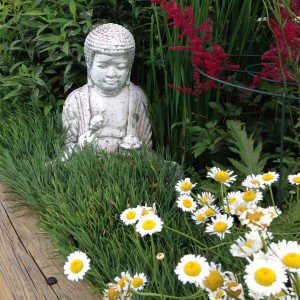 Previously, we explored perfectionism’s role as an obstacle to living an awakened life and today we’ll investigate how hypocrisy contributes, often in concert with perfectionism.
Previously, we explored perfectionism’s role as an obstacle to living an awakened life and today we’ll investigate how hypocrisy contributes, often in concert with perfectionism.
It is difficult, I would say impossible, not be a hypocrite about something at least some of the time. I was in a group recently and they were chanting the metta sutta in English. This is a lovely sentiment, but I abstained from reciting it because of the blatant hypocrisy I would have to commit.
It’s right there in the beginning in reference to ALL beings. Here is an except from the sutra:
May all beings be happy and safe; may their hearts be filled with joy. Whatever living beings there may be–feeble or strong, tall or short, big or small, visible or invisible, near of far away, already born and yet to be born–may all beings, without exception, be happy minded and dwell in perfect tranquility.
Is it possible not to harm all beings? No, it is not. I harm the vicious deer flies that attempt to rip out my flesh; I harm the countless unseen beings that reside as bacteria in my home. The workaround for all beings is to specify sentient beings. But where do we draw the line with sentience?
Another dividing line is intention. We should not seek to intentionally harm another being. But what about that mosquito that may be carrying West Nile Virus? And while we may intend to not cause harm, we will inevitably do so, either without intention or without awareness.
In the natural world, life is food. It’s as simple as that. Animals and organisms compete for those food resources. Better to have food than to be food. There are happy situations where symbiosis can prevail. Not all food results in the destruction of the host organism.
We cannot survive without harming plants, at the least. Are plants not beings? We have made a decision to exclude them from being-ness. Even if we accept that plants are not beings, many beings are destroyed in the cultivation of food from bacteria to bugs to the ground hogs and deer. Tovar Ceruli in is his lovely memoir and reflection on the enterprise of eating, A Mindful Carnivore, makes the powerful statement about his days as a vegan (and I paraphrase), “I wasn’t eating animals, but my vegetables were.” He recognized the hypocrisy. It was not possible to cultivate vegetables without harming animals.
We harm the plants, the cultivation of the plants harms the animals. Even if we try to live a life of non-harmfulness (ahimsa) it is only possible in a relative way. Of course, it behooves us to cause as little harm as possible and this is different from no harm in an absolute sense.
Perfectionism pushes us into hypocrisy. We may not be satisfied with relative non-harmfulness. After all, the metta sutta does not say: “harm less.” It presents a perfectionistic scenario that is impossible to attain.
You may think I’m mincing words here. What’s the big deal? Why does it matter? The goal of waking up and also its obstacle is to be free from confused, even delusional thinking. To believe that we cannot harm at all is confused thinking. It is born from a perfectionistic wish to be good. While I embrace the motivation to be good, I caution against the need to do it perfectly.
It is ironic that the very content that is designed to promote awakening can support a blind spot like this. This is the problem with all formal institutions. Buddhists are no exceptions and this is part of the reason that I am not a Buddhist. I endeavor to be Buddha but I am less enamored with the formal aspects of Buddhism, which arose centuries after the teachings of the Buddha. I’ve written about this in my post Buddha versus Buddhism.

